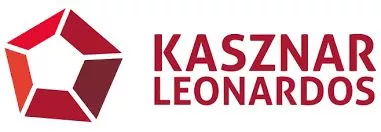The Brazilian Patent & Trademark Office (PTO) has recently opened a new Public Consultation, this time on the draft guidelines for the examination of patent applications in the biotechnology field. The Public Consultation was published in the Federal Official Gazette on December 5, 2012 and any interested party may make their submissions within a 60-day-term counted as from that publication date.
The new draft provides more definitions and illustrations on biotech subject matter not expressly mentioned in Law # 9,279/96 (ESTs, primers, SNPs, cDNAs, ORFs, fusion proteins, etc.), indicating whether they would patentable or not in view of the main statutory prohibitions found in articles 10, (IX) and 18, (I) and (III) of that Law.
Hybridomas, monoclonal and chimeric/humanized antibodies, transgenic microorganisms, nucleotide and amino acid sequences that are not naturally occurring, microbiological processes, methods of obtaining transgenic plants, the use of stem cells in the manufacture of medicaments and the use of natural products in a variety of applications are among the patentable subject matter, as long as they meet the requirements of novelty, inventive activity and industrial application.
Nonetheless, our evaluation is that little progress has been made to the existing restrictive scenario and to overcome the difficult administrative hurdles patent applicants often have to navigate. Indeed, for those following administrative decisions on appeals and office actions closely, much of what is stated in the guidelines has been adopted by examiners over the last decade. In that way, the draft guidelines appear to be a mere institutionalization of what has already been in practice.
Unfortunately, with the proposed text, the Patent Office has failed in many ways to provide incentives for a fertile environment for biotech inventions in Brazil. In fact, most of the claims that are rejected by the Brazilian PTO are the basis for a large amount of innovative biotech products.
In this connection, the Patent Office has maintained the position that any product of nature, even in an isolated form, is not patentable. Claims to isolated, truncated or artificial nucleic acids, isolated proteins, enzymes and antibodies will be rejected, as will be claims to recombinant products if there are equivalent molecules in nature. Extracts, even if enriched, are also said to fall within the product of nature bar unless they show features not normally attained and are product of direct human intervention.
In addition, the definition adopted for microorganism is restrictive. It seems to exclude those genetically modified animal and plant host cells that are used as machinery to obtain several useful products in different fields.
Finally, although the inventive activity requirement will be discussed in the second part (yet to be released) of the general guidelines for the examination of patent applications, we feel that it could also be the case to include in the guidelines for biotechnology at least a brief statement that reliance on hindsight will not be allowed. As you may know, Brazilian examiners sometimes rely heavily on hindsight to make objections grounded on obviousness to biotech subject matter.
The Brazilian Intellectual Property Association (ABPI) and other advocacy groups will soon get in touch with the Patent Office to discuss the draft guidelines. Indeed, as this is a matter submitted for public consultation, views from society at large may have a decisive stake in the final text to be published.
We have active members in these organizations and are following up this matter closely to keep you apprised of any developments as they arise. In the meantime, please do not hesitate to contact us should you have any queries hereon.
The content of this article is intended to provide a general guide to the subject matter. Specialist advice should be sought about your specific circumstances.


